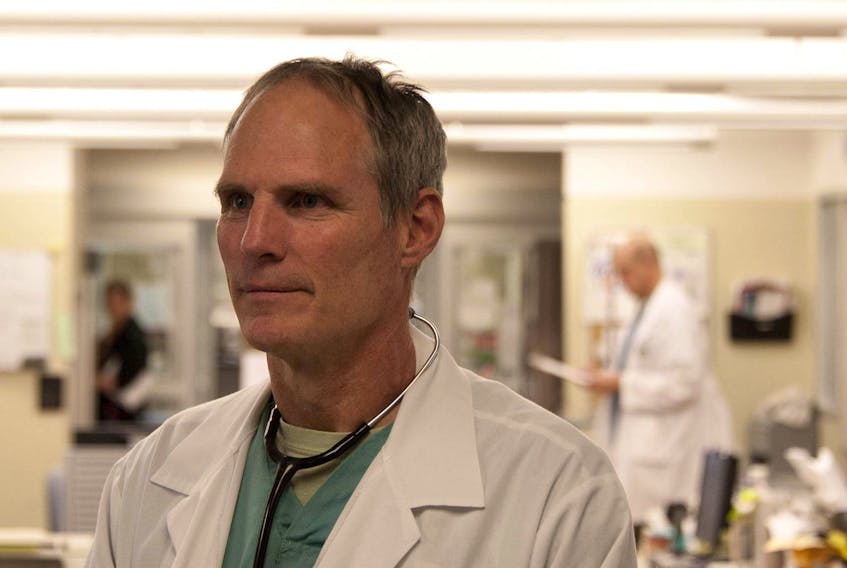Ban motorcycles, not rugby, says the chief of the emergency department at the Halifax Infirmary.
“If they’re going to ban things then I say they should ban motorcycles,” said Dr. Sam Campbell, responding to Nova Scotia School Athletic Federation’s decision to axe the sport in public high schools. “If they want to get excited about something pick that. Motorcycles are unbelievably more dangerous compared to anything young people attempt to do.”
Campbell, a rugby fan and former player of a dozen years, called the federation’s abrupt decision on Thursday “unwise.” While acknowledging rugby isn’t the gentlest of sports, Campbell said the health benefits of youngsters playing the game outweigh the negatives, calling the ban a case of adults attempting to overprotect youth.
“Every time we see someone do something that hurts them and we say we’re not going to let them do it again in case it hurts them again, you’re running the risk of creating a more fragile population in the long run.”
“The whole concept of antifragility is that people have to deal with difficult situations and hardness and if you keep trying to protect them you’re stunting their growth. It’s like being an anti-vaccine, you take away their immunization to hardship and stress.”
A day after the ban was announced Education Minister Zach Churchill called on the federation to overturn the ban on Friday.
But a noteworthy number of young rugby players have suffered serious head injuries in Canada between 2011 to 2017. The statistics come from the Canadian Hospitals Injury Reporting and Prevention Program, a data collection network of 11 emergency rooms of pediatrics hospitals and eight general hospitals in Canada. The IWK Health Centre in Halifax is among the hospitals.
The October 2018 report showed 27 percent of all rugby injuries among males aged 15 to 19 were traumatic brain injuries, the highest rate of any other sport, including ice hockey, measured in the study. That means 488 out of 1,807 emergency room injuries were traumatic brain injuries.
There were far more serious hockey injuries in the same age group (5,418) and traumatic brain injuries (1,122) but the percentage of traumatic injuries was slightly less at 20.7 per cent.
Measuring girls in the same 15 to 19 age group, rugby ranked third-highest for the rate of traumatic brain injuries at 29.2 per cent, behind ringette and hockey, respectively.
Campbell doesn’t deny there are risks associated with playing a contact game that involves tackling, but he insists most players don’t get injured.
“Lots do but most don’t,” said Campbell. “We have to manage the risk some way or another.
“But like I said, the more you try to hide people from risks the more you slow down the development of resilience. You have kids that never have to deal with pain or risk and you’re creating a population that doesn’t know how to deal with it.”
RELATED:









